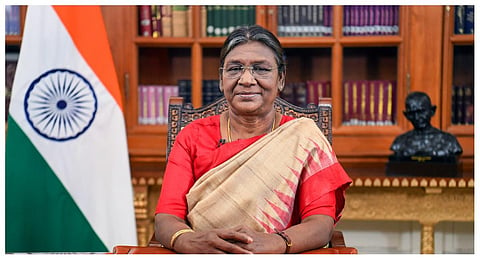

MYSURU: Tribal communities in the Mysuru region, who have been lamenting the deprivation of their basic rights and privileges for long, are now jubilant as they will be interacting with President Droupadi Murmu in Bengaluru on July 3.
Murmu will meet members of the Particularly Vulnerable Tribal Group (Primitive Tribes) of Karnataka. The tribal people hope that their dreams of empowerment through PVTG, which includes Jeenu Kuruba and Koraga communities, will come true soon.
The Karnataka Tribal Research Institute in Mysuru has chosen 20 members from Koraga and Jeenu Kuruba communities to interact with the President.
Members from these communities have decided to apprise the President of their plight because of the failure of the successive governments to implement the Forest Rights Act, 2006, depriving them of community and individual rights. The Tribal Directorate has recognised Jeenu Kuruba community with a population of 36,000 and Koragas numbering 14,500 spread across Mysuru, Kodagu, Chamarajnagar, Udupi and Dakshina Kannada districts as Primitive Tribes.
Many women from these two communities can speak Hindi and English, and some of them have been selected for the interaction programme at Raj Bhavan. They might submit a memorandum to the President to draw the attention of the union and state governments to their problems.
Chandru, a Jeenu Kuruba, said he was thrilled when he got an invitation to meet the President. Only 20% of the tribals have been given land under the Forest Rights Act in Kodagu. But they lack community rights.
Tribals in HD Kote, Periyapatna, Virajpet, Somwarpet and parts of Chamarajanagar districts are still suffering as the government’s welfare schemes are yet to reach them.